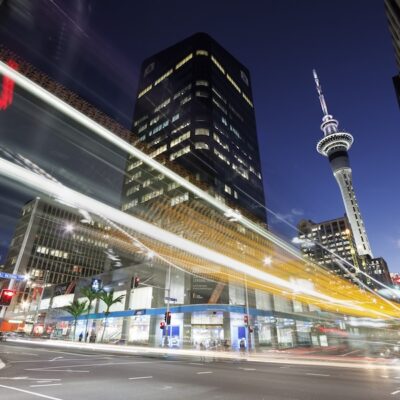Aquaculture Direct sells half-share to Envirostrat
Aquaculture Direct, one of New Zealand’s largest dedicated aquaculture consultancy businesses, has sold 50 percent of the company to natural resource and sustainability advisor Envirostrat. The agreement was completed in […]
Aquaculture Direct, one of New Zealand’s largest dedicated aquaculture consultancy businesses, has sold 50 percent of the company to natural resource and sustainability advisor Envirostrat.
The agreement was completed in November and announced to staff and stakeholders today. Both companies are leaders in sustainable utilisation of natural resources.
Aquaculture Direct provides comprehensive management solutions for the aquaculture industry, including resource consents, farm development, monitoring/compliance requirements, valued added product development and the day to day operational management of marine farms. The company has also recently celebrated 10 years in business.
Auckland based Envirostrat, led by Dr Nigel Bradly is a natural resource and sustainability advisor, and impact investment project developer, working alongside public and private organisations, iwi and other key stakeholders, to create and execute major environmental projects in New Zealand and offshore.
The purchase saw Aquaculture Direct founder and respected industry personality Graeme Coates sell his shareholding to Envirostrat. Coates remains as a director involved in the Aquaculture Direct business on a day to day basis, but no longer as a shareholder.
Aquaculture Direct is also growing its core management team and has recruited Rebecca Clarkson. Rebecca has been Environment Manager for Aquaculture New Zealand for the past 13 years and is highly regarded as a leader within the aquaculture industry.
Bruce Cardwell, joint founder and Managing Director of Aquaculture Direct, says Envirostrat brings complementary skills and offers a greater range of opportunities for the business that will position it for significant innovation and growth.
“Envirostrat has techno-economic unique skillsets in both coastal and freshwater sectors, whereas we are very specialised in aquaculture and working closely with the industry.
“We’ve collaborated with Envirostrat on several major projects recently; the combined experience and expertise has enabled both firms to achieve outcomes that neither of us would have had before,” he said.
Cardwell says Aquaculture Direct is well on the way to doubling the business over the next 12 months and also looking to expand into new regions throughout New Zealand. Currently, the business is primarily based in Blenheim and operates through the top of the South Island, but intends to expand its operations into Northland, Auckland, Waikato, Bay of Plenty, Canterbury and Southland regions.
“The Aquaculture sector is growing incredibly fast, but it has to be done properly,” says Cardwell.
“We are very pragmatic and business orientated, so we provide a critical go-between in terms of advice about what can be achieved in aquaculture, as opposed to what would be ‘nice to have’. The reality at present is that there’s only a few species that are actually farmable and can make a return on their investment in New Zealand.
Cardwell believes that New Zealand can benefit from the economic, cultural and environmental opportunities that sustainably managed aquaculture can deliver.
“Environmental considerations are the priority for our industry. Everything has an impact, and we know exactly what our impact is. We’re always careful because we’re generally using public water space and we know that it’s a privilege, not a right, to work in this space.”
“Obviously there’s quite a bit of uncertainty right now and no one can say for sure what the export environment, in particular, will look like, but we know that globally there’s an increased demand for protein. New Zealand has a good reputation as being a sustainable provider of premium seafood, so there’s an expectation that that will continue to grow into the future,” Cardwell said.






